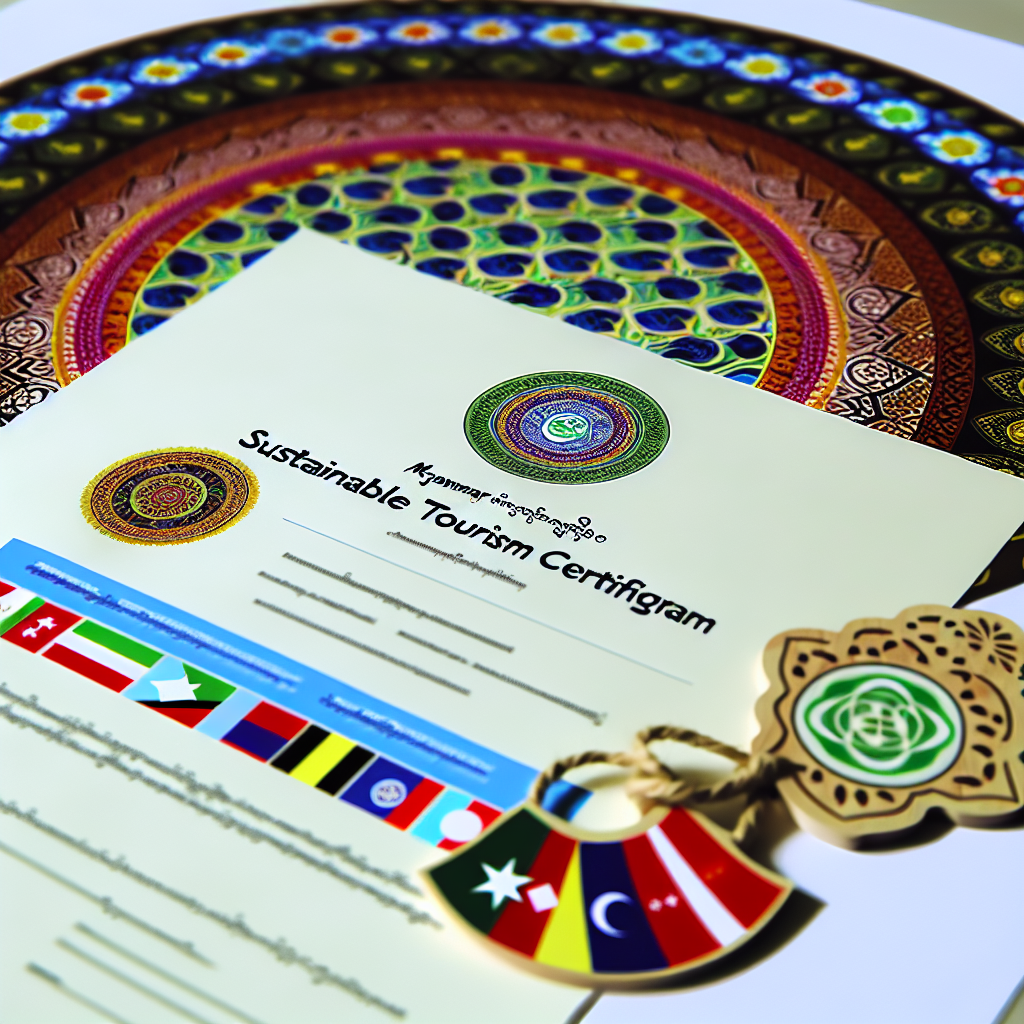Myanmar’s Sustainable Tourism Certification Program Gains International Recognition
In recent years, Myanmar has emerged as a promising destination for travelers seeking authentic cultural experiences and pristine natural landscapes. As the country opens up to global tourism, the need for sustainable practices has become paramount. Recognizing this, Myanmar launched its Sustainable Tourism Certification Program (STCP), which has now garnered significant international recognition for its commitment to environmental preservation, community engagement, and responsible tourism development.
Understanding Myanmar’s Sustainable Tourism Certification Program
The Sustainable Tourism Certification Program was initiated by Myanmar’s Ministry of Hotels and Tourism in collaboration with international organizations such as the United Nations Development Programme (UNDP) and the Global Sustainable Tourism Council (GSTC). The program aims to promote sustainable tourism practices among hotels, tour operators, and other tourism-related businesses across the country.
At its core, the STCP evaluates businesses based on a comprehensive set of criteria that include environmental management, socio-cultural responsibility, economic benefits to local communities, and visitor satisfaction. By adhering to these standards, certified businesses demonstrate their commitment to minimizing negative impacts while maximizing positive contributions to Myanmar’s tourism sector.
Key Features of the Certification Program
- Environmental Stewardship: Encourages energy efficiency, waste reduction, water conservation, and protection of biodiversity.
- Community Engagement: Promotes local employment, supports indigenous cultures, and fosters community-based tourism initiatives.
- Economic Sustainability: Ensures fair wages, reinvestment in local infrastructure, and equitable distribution of tourism revenues.
- Visitor Experience: Focuses on authentic, educational, and respectful interactions between tourists and host communities.
International Recognition and Its Impact
Myanmar’s STCP recently received accreditation from the Global Sustainable Tourism Council, a leading international body that sets global standards for sustainable tourism. This endorsement not only validates the program’s rigorous criteria but also places Myanmar on the map as a responsible tourism destination.
According to a 2023 report by the Myanmar Tourism Federation, over 150 businesses have been certified under the STCP, representing a 40% increase from the previous year. This growth reflects the increasing awareness and commitment within the industry to sustainable practices.
International recognition has also attracted eco-conscious travelers from Europe, North America, and Asia, who prioritize sustainability in their travel choices. For example, the Inle Lake region, known for its floating villages and unique ecosystem, has seen a rise in certified eco-lodges that offer immersive experiences while preserving the environment.
Case Study: The Green Lotus Hotel, Yangon
The Green Lotus Hotel in Yangon is a flagship example of the STCP’s success. After obtaining certification in 2022, the hotel implemented solar panels, reduced single-use plastics, and partnered with local artisans to supply handmade products. These initiatives not only reduced the hotel’s carbon footprint by 30% but also boosted local employment by 15%.
Guest feedback has been overwhelmingly positive, with many visitors appreciating the hotel’s authentic cultural offerings and sustainable ethos. The Green Lotus Hotel’s model has inspired other establishments in Yangon and beyond to pursue certification.
Challenges and Future Prospects
Despite its successes, Myanmar’s sustainable tourism sector faces challenges such as limited infrastructure, political instability, and the need for greater awareness among small and medium enterprises. However, ongoing support from international donors and government initiatives aims to address these issues.
Looking ahead, the STCP plans to expand its reach to rural and less-visited areas, promoting community-based tourism that empowers local populations while preserving Myanmar’s rich heritage and natural beauty.
Conclusion
Myanmar’s Sustainable Tourism Certification Program represents a significant step forward in aligning the country’s tourism industry with global sustainability standards. Through rigorous criteria, community involvement, and environmental stewardship, the program has earned international recognition and is helping to position Myanmar as a responsible and attractive destination for travelers worldwide.
As more businesses embrace sustainable practices, Myanmar stands to benefit economically, socially, and environmentally, ensuring that its unique cultural and natural treasures are preserved for generations to come. The success of the STCP serves as a model for other emerging tourism markets seeking to balance growth with sustainability.





